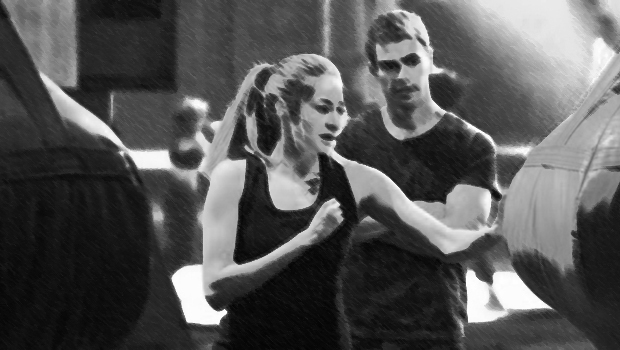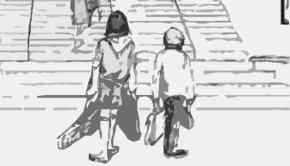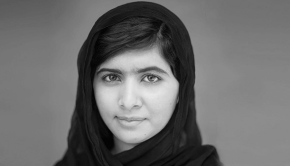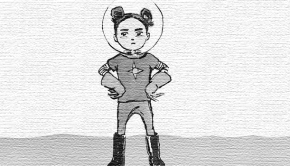Must Every YA Action Heroine Be Petite?
Julianne Ross | The Atlantic
From Divergent’s Tris to The Hunger Games‘ Katniss, the women of young-adult fiction can be strong, independent, and mature — as long as they’re also scrawny.
Nearly every time Tris Prior is given a new set of clothes, they’re too loose. The protagonist of the enormously popular Divergent trilogy — which sees its first film adaptation Friday – is so short and thin that she has to roll up her jeans three times just to make them fit, and her shirts come close to slipping off her narrow shoulders. Tris may be one of the toughest teens in all of dystopian Chicago, but she still refers to herself as “birdlike, made narrow and small … built straight-waisted and fragile.”
When it comes to recent young adult sci-fi and fantasy literature, this is typical. Divergent is just one in a spate of recent young adult novels—three of which saw big-budget film adaptations in 2013 — to emphasize the diminutive stature of its main character.
Mortal Instruments, for example, Clary Frayis “delicate” and “slender,” with a small chest and “narrow hips.” Lena Duchannes, the most powerful “caster” (i.e., witch) in the Beautiful Creatures series, earned her nickname “Lena Beana” because her grandmother thought she was “skinny as a string bean.” We learn that the tenacious heroine of Blood Red Road (a best-selling “Mad Max for girls” is “scrawny” before we even learn her name. And, of course, there’s The Hunger Games, which makes it clear that Katniss Everdeen is “smaller naturally,” even in comparison with the other members of her starving district. Some readers became so attached to the image of a short, emaciated girl claiming victory in the battle-royal arena that when Jennifer Lawrence was cast as Katniss, multiple critics complained that she was too “big-boned” for the part.
Today’s strong female protagonists are overwhelmingly described as “small,” “skinny,” and “slender.” It seems literature only goes so far in its message of female empowerment, routinely granting its most kickass heroines classically masculine-levels of strength (physical or otherwise) only when cloaked within the trappings of a more delicate — and recognizable — femininity.








